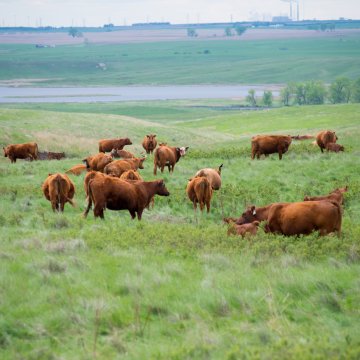May 30, 2025 | 03:26 GMT +7
May 30, 2025 | 03:26 GMT +7
Hotline: 0913.378.918
May 30, 2025 | 03:26 GMT +7
Hotline: 0913.378.918
Agriculture Secretary Tom Vilsack said on Thursday that the USDA will reconsider that 2017 interpretation, a step that could lead to a revival of the regulation to give chickens, pigs, and cattle on organic farms more elbow room than they commonly get on factory farms.

The Trump-era decision to withdraw the organic livestock rule is under challenge in federal court. The Organic Trade Association argues that the withdrawal of the rule was unjustified, so it should be reinstated. The OTA was scheduled to file an amended motion for summary judgment on Friday.
Vilsack said the National Organic Program would begin a rulemaking process centered on the USDA’s authority to regulate organic agriculture. It would include a proposal saying small screened-in porches do not qualify as giving poultry the chance to go outdoors and cover a range of other practices that were subject to the organic livestock rule. Porches are a divisive issue that splits smaller organic producers and large-scale organic poultry farms that have thousands of birds indoors.
“We anticipate sending the proposed rule to [the White House for review] within six to nine months from the date of the [court] remand,” said Vilsack. “We look forward to receiving public comments on those topics, and after reviewing the comments, the USDA will publish a final rule.”
The OTA welcomed Vilsack’s “acknowledgement that the department is walking away from the illegal Trump withdrawal of the organic animal welfare rule, and [the] acknowledgement that porches should not qualify as outdoor access in organic poultry operations.”
However, “absent a full settlement,” the lawsuit will proceed, said the OTA. It filed suit in September 2017 because of repeated delays by the new administration in putting the animal welfare rule into effect.
Issued on President Obama’s last day in office, the livestock rule said organic farmers must provide outdoor access for their animals on all but the hottest and coldest days. It would have effectively ended the practice of confining egg-laying hens in small “battery cages” and would have required group housing of hogs. Those standards would have drawn a sharp contrast to large-scale conventional farms, which use battery cages, so-called sow crates, and veal calf stalls that closely confine food-bearing animals in the name of efficiency and labor savings but are viewed as inhumane by animal rights groups and supportive consumers.
The USDA said it received 72,000 comments on its proposal to withdraw the animal welfare rule. About 63,000 supported the rule, while approximately 50 favored withdrawal. After the decision was announced, the largest U.S. farm group and the biggest groups speaking for livestock producers said the organic rule would have vilified conventional agriculture.
It was the second time in a week that Vilsack announced a sharp change in course from the Trump era. Last Friday, he said the USDA would propose three rules to give cattle, hog, and poultry producers more leverage in their dealings with meat processors. The rules would be similar to a set of regulations proposed at the end of the Obama administration and quashed by Trump appointees. They would make it easier for a producer to prove unfair treatment by a processor, and write a new regulation on so-called tournament systems that processors use to determine pay for poultry farmers.
(Agri.com)

(VAN) Vikas Rambal has quietly built a $5 billion business empire in manufacturing, property and solar, and catapulted onto the Rich List.

(VAN) Available cropland now at less than five percent, according to latest geospatial assessment from FAO and UNOSAT.

(VAN) Alt Carbon has raised $12 million in a seed round as it plans to scale its carbon dioxide removal work in the South Asian nation.

(VAN) Attempts to bring down the price of the Japanese staple have had little effect amid a cost-of-living crisis.

(VAN) Fourth most important food crop in peril as Latin America and Caribbean suffer from slow-onset climate disaster.

(VAN) Shifting market dynamics and the noise around new legislation has propelled Trouw Nutrition’s research around early life nutrition in poultry. Today, it continues to be a key area of research.

(VAN) India is concerned about its food security and the livelihoods of its farmers if more US food imports are allowed.